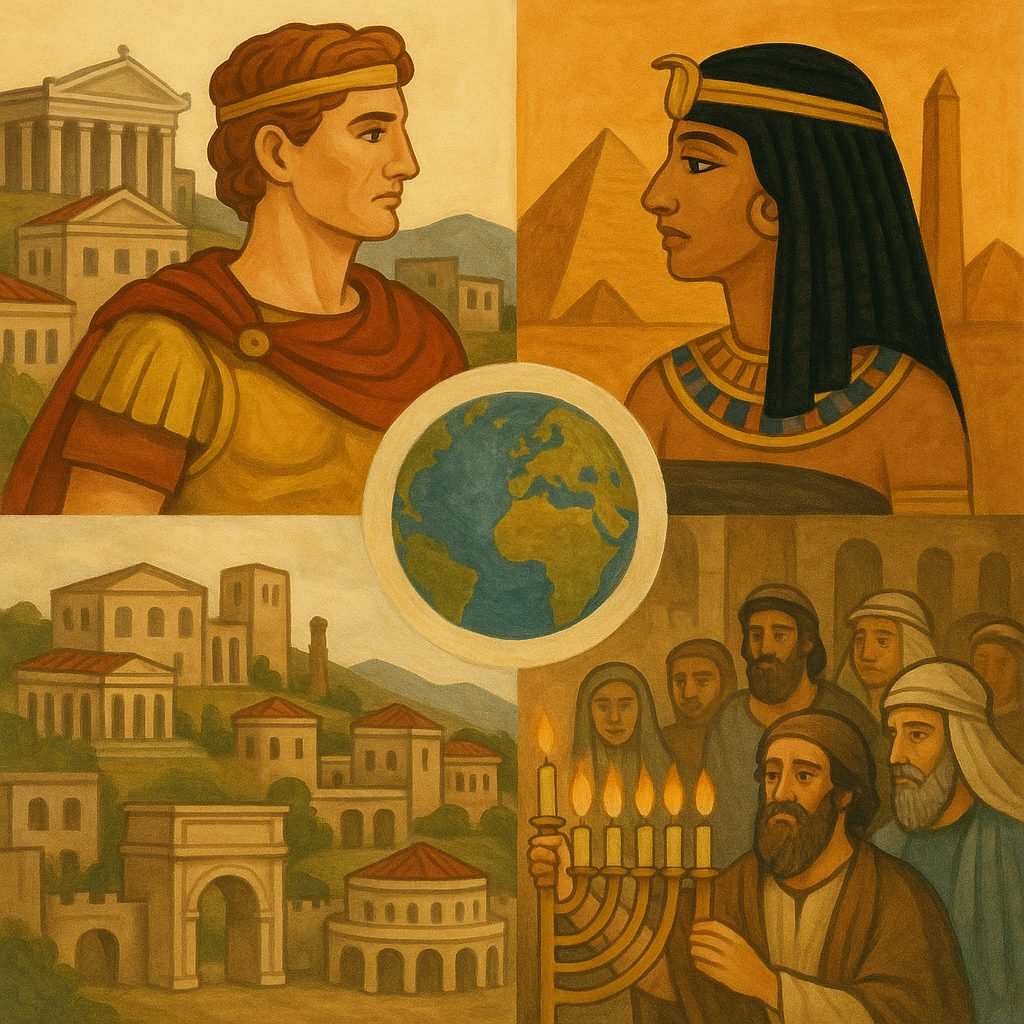Lesson 2: The Hellenistic Kingdoms (The Hellenistic World)
👑 The Hellenistic Kingdoms
After Alexander the Great died, his empire broke into three big parts. His generals fought for power and took control of different lands. These new areas were called the Hellenistic Kingdoms because they still followed Greek culture—“Hellenistic” means “Greek-like.”
Let’s explore them!
🛡️ Hellenistic Macedonia
This kingdom was in Greece and Macedonia, the homeland of Alexander. One of his generals ruled here. They tried to keep Greek traditions and power strong.
But there were many wars. The kings fought with each other and with other Greek cities. Some people wanted freedom, and others wanted to join Rome. Over time, Rome became stronger, and Macedonia became weaker. Eventually, the Romans took over.
Fun Fact: The Greeks in Macedonia still loved Greek plays, learning, and sports, even as Rome came closer.
🏺 Hellenistic Egypt (Ptolemaic Egypt)
This kingdom was in Egypt, ruled by Ptolemy, one of Alexander’s best friends and generals. Ptolemy started the Ptolemaic dynasty, where many kings were also called Ptolemy!
The Ptolemies were Greek, but they ruled Egypt and even tried to look like Egyptian pharaohs. They built great cities like Alexandria, which became a center for science and learning.
One of the most famous rulers was Cleopatra VII, the last queen of this kingdom. She was smart, brave, and spoke many languages. She wanted to protect her kingdom from the Romans.
Cleopatra met two Roman leaders—Julius Caesar and later Mark Antony. She had strong alliances with them. But after a big war with Octavian (who became the first Roman Emperor), Cleopatra and Mark Antony lost. Many say they took their own lives instead of being captured.
After that, Egypt became part of Rome.
🏰 Hellenistic Syria (Seleucid Empire)
This kingdom was in Asia, in places like modern-day Syria, Iraq, and Iran. It was ruled by another general named Seleucus.
The Seleucid Empire was huge and powerful, but also very hard to control. There were many different people and cultures. The kings tried to spread Greek ideas, but not everyone liked it.
One important city was Antioch, full of Greek theaters, temples, and markets.
One interesting event was the Jewish revolt against the Seleucid king Antiochus IV. He tried to force Greek religion on the Jewish people, but they fought back. This led to the holiday of Hanukkah later on.
Over time, the Seleucid kingdom got smaller and weaker until it was taken over by Rome and other local powers.
🌍 Summary
The Hellenistic Kingdoms mixed Greek culture with local traditions. People shared ideas about science, art, math, and religion. Cities became more connected. But in the end, Rome took over them all.
These kingdoms helped spread Greek culture far and wide, and their stories are still remembered today!
